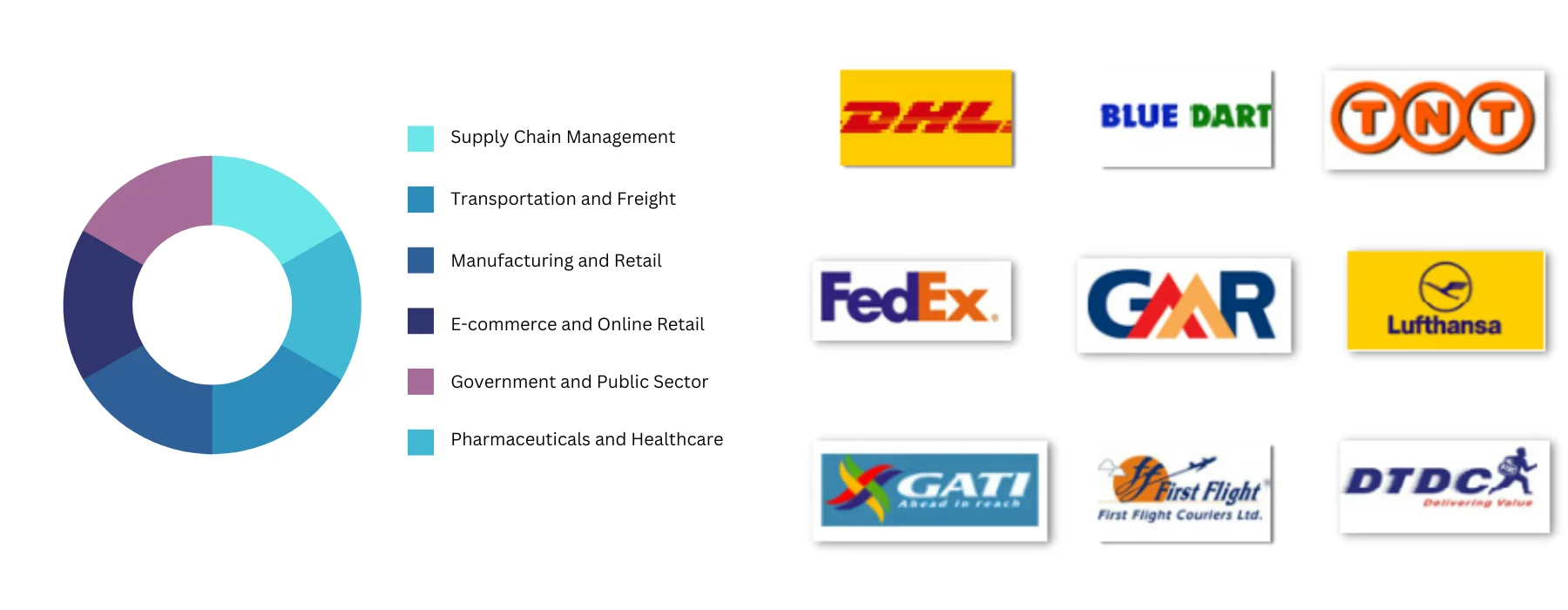Supply Chain Management (SCM) is the oversight of materials, information, and finances as they move in a process from supplier to manufacturer to wholesaler to retailer to consumer.


Our guides and mentors for the PhD programme in Logistics & supply chain management courses are the best in the industry.
1. Academic members from the university.
2. ILAM PhD professors.
3. Senior Industry members from the logistics industry.
4. Candidates have the flexibility of choosing their guide /mentor which is provided by ILAM and the University. Under special circumstances, if a candidate has a specific preference for a guide they can do so provided it has been approved by the academic board.
5. We provide PhD in logistics and supply chain management through distance learning courses in the format of Online courses in logistics and supply chain management Part time courses in Management Correspondence courses in logistics and supply chain management. Candidates, who have little knowledge of logistics, will undergo 6 months of academic work which cover areas of the basics of logistics. After 6 months candidates work on their thesis in conjunction with their guide/mentor and have the facility to meet them according to mutual convenience.
6. Some of the modules covering the basics and foundation of logistics and supply chain management will be as follows: Operations & Administration/ Planning and development / Marketing and public affairs / Government relations / Material management / Purchasing / logistics and supply chain management / Human resources / Quality Analysts in Research Centers.


Resource Manager - Planning and managing logistics, warehouse, transportation, and customer services. Directing, optimizing, and coordinating full order cycle. Liaising and negotiating with suppliers, manufacturers, retailers, and consumers.
Purchase Manager - ensuring the cost-effective purchase of all materials and services as required by the procurement plan
Operation Analyst - They Identify, track, and report regularly on key operational performance metrics. Develop quantitative analysis, ad-hoc reports, and models to support key operations decisions, including process optimizations and logistics management.
Consultants - Responsible for Building transport, inventory, and location strategies around your customer service goals. Developing a logistics infrastructure that meets your business goals
Warehouse Manager - A Warehouse Manager is responsible for ensuring that the supply chain is efficient and effective throughout the organization. They organize, store, and monitor the distribution of goods to ensure that items and resources are shipped to their appropriate destinations.
IT Consultant - They develop the app and software to track transport and warehouse management.
Cargo Manager - They manage the daily routine of flight/cargo/ship which includes arrival & dispatch.
The complex world of logistics and supply chain management (LSCM) underpins the smooth flow of goods across the globe. As e-commerce booms, manufacturing landscapes shift, and sustainability concerns rise, the need for highly qualified experts to lead the way in optimizing these intricate systems becomes paramount. Enter the PhD in Logistics and Supply Chain Management – a rigorous research program designed to equip you with the knowledge and skills to become a thought leader in this dynamic field.
A PhD in Logistics and Supply Chain Management is a doctoral program that delves into the core functionalities and complexities of LSCM. It equips you with the expertise to conduct groundbreaking research on critical issues facing the industry. Here's a glimpse of what you'll achieve:
• Become a research leader: You'll develop the ability to conduct original research in areas like supply chain optimization, risk management, logistics network design, and sustainable LSCM practices. Your research can inform policy decisions, drive innovation, and contribute to a more efficient and resilient global supply chain.
• Shape the future of LSCM: With your in-depth knowledge, you'll be well-positioned to influence the future of logistics and supply chain management. This could involve leading research teams, developing innovative solutions, or spearheading initiatives that address emerging challenges within the industry.
• Educate future generations: PhD graduates have the opportunity to pursue academic careers as professors and researchers. By sharing your knowledge, you can inspire and equip future generations of LSCM professionals to tackle the industry's complexities.
A PhD in Logistics and Supply Chain Management offers a multitude of benefits:
• Career advancement: This degree opens doors to prestigious positions within academia, research institutions, consulting firms, government agencies, and leading logistics and supply chain companies.
• Expertise and recognition: Become a recognized authority in the field, gaining respect and influence within the logistics and supply chain management industry.
• Intellectual fulfillment: Engage in cutting-edge research, pushing the boundaries of knowledge and contributing to the continuous development of LSCM practices.
• Global opportunities: The skills and knowledge gained through a PhD can be applied on a global scale, paving the way for international career opportunities.
A PhD program requires a strong commitment to research. Here's who might find this path fulfilling:
• LSCM professionals: If you already possess experience in logistics and supply chain management and desire to contribute to the industry in a more impactful way, a PhD can be the perfect next step.
• Research enthusiasts: Do you have a passion for research and a thirst for knowledge? A PhD allows you to delve deeply into specific LSCM topics and make a lasting contribution to the field.
• Academically inclined individuals: If you enjoy the academic environment and have a strong foundation in business, management, or related fields, a PhD in Logistics and Supply Chain Management can be a stimulating avenue for further exploration.
PhD programs in Logistics and Supply Chain Management typically take 4-5 years to complete, depending on the institution and your research focus. The curriculum generally includes:
• Advanced coursework: Refine your knowledge by delving into advanced topics like supply chain analytics, transportation management, logistics network design, and risk management strategies specific to LSCM.
• Research methodology: Gain the skills and tools necessary to conduct rigorous research, including data analysis, statistical modeling, and scientific writing.
• Dissertation research: The cornerstone of your PhD journey, the dissertation allows you to delve deeply into a specific research topic related to logistics and supply chain management and present your findings in a comprehensive document.
Several esteemed universities worldwide offer PhD programs in Logistics and Supply Chain Management. Here's a glimpse at a few notable options:
• Massachusetts Institute of Technology (USA): Renowned for its world-class research programs, MIT's PhD in Operations Research offers a strong focus on logistics and supply chain management, with faculty conducting research on cutting-edge topics like blockchain technology in LSCM and autonomous logistics systems.
• The Hong Kong University of Science and Technology (Hong Kong): Located in the heart of a major logistics hub, HKUST's PhD in Logistics and Supply Chain Management program boasts a strong industry focus, providing students with opportunities to collaborate with leading logistics companies and conduct research on real-world challenges.
While PhD programs in Logistics and Supply Chain Management are ideal for those wanting to specialize, some universities offer related PhD programs that might be of interest:
• PhD in Operations Research: This program might have a strong focus on optimization techniques applicable to LSCM, but could encompass broader operational research topics.
• PhD in Industrial Engineering: This program could delve into the engineering aspects of logistics, such as warehouse design and automated material handling systems.
Choosing the right PhD program requires careful consideration of several factors:
• Research focus: Identify your area of interest within logistics and supply chain management. Do you want to research supply chain disruptions and risk mitigation strategies, explore the impact of artificial intelligence on LSCM systems, or analyze sustainable practices within global supply chains? Aligning your research focus with the program's strengths is crucial.
• Faculty expertise: Research the faculty members associated with the program. Look for professors whose research interests align with your own, as they can provide valuable guidance and mentorship throughout your PhD journey.
• Program structure: Evaluate the program's coursework, research opportunities, and dissertation requirements. Ensure the structure provides a strong foundation in LSCM and allows you to pursue your specific research interests.
• Financial aid and funding: Consider the program's financial aid options and funding opportunities for research projects. Securing funding can alleviate financial stress and allow you to focus on your academic pursuits.
A PhD in Logistics and Supply Chain Management equips you with the knowledge and expertise to become a leader and innovator in the ever-evolving world of LSCM. If you possess a passion for optimizing complex systems, a thirst for knowledge, and a commitment to research, this degree can propel you towards a fulfilling career at the forefront of the industry.
Partnering with world's leading universities and companies